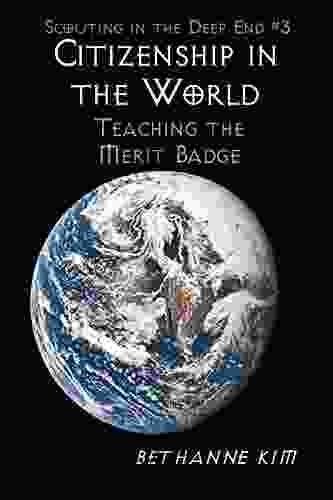The Enigmatic Connection Between the Computer and the Human Brain: Exploring the Frontiers of Consciousness, Artificial Intelligence, and Computational Neuroscience


The advent of the computer age has ushered in a profound era of scientific exploration, blurring the lines between the physical and the digital. At the heart of this transformation lies an intriguing parallel between two enigmatic entities: the human brain and the computer. Both are capable of astounding feats of information processing, problem-solving, and creativity. As scientists delve deeper into these realms, they are uncovering remarkable insights into the nature of consciousness, the potential of artificial intelligence, and the boundless possibilities at the intersection of computation and neuroscience.
Unveiling the Mechanisms of Consciousness
The human brain is an awe-inspiring biological marvel, possessing an unparalleled capacity for consciousness, self-awareness, and subjective experience. However, the exact mechanisms that give rise to these remarkable qualities remain shrouded in mystery. Computational neuroscience, a burgeoning field at the intersection of computer science and neurobiology, seeks to illuminate these enigmatic processes by simulating neural networks and studying their dynamics.
4.4 out of 5
| Language | : | English |
| File size | : | 3042 KB |
| Text-to-Speech | : | Enabled |
| Screen Reader | : | Supported |
| Enhanced typesetting | : | Enabled |
| Print length | : | 138 pages |
Through intricate computational models, researchers are gaining unprecedented insights into the intricate web of connections within the brain. By analyzing the flow of information across these networks, they are unraveling the neural underpinnings of memory, attention, and decision-making. These computational simulations serve as virtual laboratories, allowing scientists to probe the brain's hidden complexities and unravel the secrets of conscious experience.
Advancing Artificial Intelligence: Inspiration from the Human Mind
The human brain has long served as a source of inspiration for artificial intelligence (AI) research. AI systems, designed to mimic the cognitive abilities of humans, have made remarkable strides in various domains, from image recognition to natural language processing. However, bridging the gap between human-level intelligence and current AI capabilities remains a significant challenge.
By studying the neural architecture of the human brain and its underlying computational processes, AI researchers hope to unlock new insights into the principles of intelligent behavior. Computational models of neural networks provide a valuable platform for experimenting with different learning algorithms and architectures, ultimately paving the way for the development of more sophisticated and human-like AI systems.
Unleashing the Power of Computational Neuroscience
Computational neuroscience has emerged as a powerful tool, revolutionizing our understanding of the brain and its functions. Through sophisticated computational techniques, researchers are able to analyze vast amounts of neuroimaging data, such as fMRI and EEG recordings, providing unprecedented insights into brain activity.
These computational methods enable scientists to identify distinct brain regions involved in specific cognitive processes, map the flow of information across neural networks, and even predict individual variations in behavior and cognitive abilities. By unraveling the intricate computations performed by the brain, computational neuroscience is shedding light on the fundamental principles governing human cognition and consciousness.
Exploring the Future of Mind-Machine Interfaces
The convergence of computer technology and neuroscience has opened up tantalizing possibilities for mind-machine interfaces (MMIs). MMIs aim to establish direct communication between the human brain and external devices, offering unprecedented potential for medical treatments, assistive technologies, and human augmentation.
Computational models of neural activity play a crucial role in developing effective MMIs. By simulating the brain's computational processes, researchers can optimize algorithms for decoding brain signals and controlling external devices. These models also provide a framework for understanding the safety and ethical implications of MMIs, ensuring responsible development and deployment of these technologies.
Envisioning a New Era of Scientific Discovery
The ongoing dialogue between computer science and neuroscience is leading to a profound shift in our understanding of the human mind, artificial intelligence, and the nature of computation itself. As computational models become increasingly sophisticated and neuroimaging techniques continue to advance, we are poised to unravel the fundamental principles that govern consciousness, intelligence, and the human experience.
The intersection of these disciplines promises a future filled with transformative discoveries, groundbreaking technologies, and a deeper appreciation for the intricate workings of the human brain and the boundless potential of computation. This new era of scientific exploration holds the key to unlocking the mysteries of the mind, shaping the destiny of artificial intelligence, and redefining the very nature of human experience.
4.4 out of 5
| Language | : | English |
| File size | : | 3042 KB |
| Text-to-Speech | : | Enabled |
| Screen Reader | : | Supported |
| Enhanced typesetting | : | Enabled |
| Print length | : | 138 pages |
Do you want to contribute by writing guest posts on this blog?
Please contact us and send us a resume of previous articles that you have written.
 Fiction
Fiction Non Fiction
Non Fiction Romance
Romance Mystery
Mystery Thriller
Thriller SciFi
SciFi Fantasy
Fantasy Horror
Horror Biography
Biography Selfhelp
Selfhelp Business
Business History
History Classics
Classics Poetry
Poetry Childrens
Childrens Young Adult
Young Adult Educational
Educational Cooking
Cooking Travel
Travel Lifestyle
Lifestyle Spirituality
Spirituality Health
Health Fitness
Fitness Technology
Technology Science
Science Arts
Arts Crafts
Crafts DIY
DIY Gardening
Gardening Petcare
Petcare James W Williams
James W Williams Malba Tahan
Malba Tahan Joseph Conrad
Joseph Conrad Amy Brown
Amy Brown Nathan Belofsky
Nathan Belofsky William G Dever
William G Dever Steven C Hayes
Steven C Hayes Gary Wiener
Gary Wiener Jennifer S Kelly
Jennifer S Kelly Christine Fanthome
Christine Fanthome Sian Warriner
Sian Warriner Andy Hunt
Andy Hunt Kresley Cole
Kresley Cole Tim Marshall
Tim Marshall Julie Mosier
Julie Mosier Amiee Mueller
Amiee Mueller Eric T Knight
Eric T Knight Helen E Fisher
Helen E Fisher Joe Dan Lowry
Joe Dan Lowry Thomas J Whalen
Thomas J Whalen Louise Bates Ames
Louise Bates Ames James Mullaney
James Mullaney Courtney Defeo
Courtney Defeo Kieron Gillen
Kieron Gillen Philip Gibson
Philip Gibson Clotaire Rapaille
Clotaire Rapaille The 60 Minutes Summary
The 60 Minutes Summary Erin Chack
Erin Chack Derrick Jensen
Derrick Jensen Andy Singleton
Andy Singleton Rosalind Wiseman
Rosalind Wiseman Shalabh Aggarwal
Shalabh Aggarwal Maria Youtman
Maria Youtman Jim Santos
Jim Santos Bridget Ericsson
Bridget Ericsson J Stephen Jones
J Stephen Jones Donna Williams
Donna Williams Paul Graham
Paul Graham James P Kelly
James P Kelly K M Shea
K M Shea Thom Hartmann
Thom Hartmann Randall E Schumacker
Randall E Schumacker Stephenie Meyer
Stephenie Meyer Jan E Stets
Jan E Stets Paul Wieland
Paul Wieland Jeremy J Baumberg
Jeremy J Baumberg Amber Lee Sellers
Amber Lee Sellers Joseph Wayne Smith
Joseph Wayne Smith Danny Dreyer
Danny Dreyer William Rosen
William Rosen Mark Stallard
Mark Stallard Art Star
Art Star Shere Hite
Shere Hite Torey L Hayden
Torey L Hayden Joe Dante
Joe Dante Jessica Cunsolo
Jessica Cunsolo Candida Lawrence
Candida Lawrence Josiah Hesse
Josiah Hesse Ken Chaddock
Ken Chaddock Swede Burns
Swede Burns Amir Alexander
Amir Alexander Amie Kaufman
Amie Kaufman Paul Oliver
Paul Oliver Carlo Buzzichelli
Carlo Buzzichelli Claudia J Carr
Claudia J Carr Paul Dickson
Paul Dickson Joan Freeman
Joan Freeman Wendy Margolis
Wendy Margolis Elise Christie
Elise ChristieK D
 Bethanne Kim
Bethanne Kim Jerry D Moore
Jerry D Moore Derek Thompson
Derek Thompson Stephen Walker
Stephen Walker Stephen Barr
Stephen Barr Trent Shelton
Trent Shelton Theresa Y Wee M D
Theresa Y Wee M D Muhammad Vandestra
Muhammad Vandestra Victoria Richards
Victoria Richards Amber Foster
Amber Foster Pico Iyer
Pico Iyer Guillaume Haeringer
Guillaume Haeringer Amby Cooper
Amby Cooper Rick Deutsch
Rick Deutsch Pinky Mckay
Pinky Mckay Rick Stanton
Rick Stanton Gia Giasullo
Gia Giasullo Martin Williams
Martin Williams Stephen M Barr
Stephen M Barr Jonathan Bartlett
Jonathan Bartlett Jeff Martone
Jeff Martone Denise Ni
Denise Ni Kenneth P Stephens
Kenneth P Stephens E T Bryant
E T Bryant Sandra T Barnes
Sandra T Barnes John Bingham
John Bingham John Mcpherson
John Mcpherson Susanna Heli
Susanna Heli Reinhold Messner
Reinhold Messner Trevor Day
Trevor Day Anthony Haynes
Anthony Haynes Dima Zales
Dima Zales Jeffrey Steadman
Jeffrey Steadman Sue Monk Kidd
Sue Monk Kidd Jd Mader
Jd Mader Ryan Gray
Ryan Gray Sarah Woodbury
Sarah Woodbury Don Stradley
Don Stradley Charles J Alsheimer
Charles J Alsheimer Patricia L Papernow
Patricia L Papernow Joseph Howse
Joseph Howse Melody Schreiber
Melody Schreiber Philippa Langley
Philippa Langley Jack Falla
Jack Falla Tom Colicchio
Tom Colicchio Jeff Gaudette
Jeff Gaudette Theresa I Soto
Theresa I Soto Josephine Atluri
Josephine Atluri Helena P Blavasky
Helena P Blavasky Tom Taulli
Tom Taulli William Bohan
William Bohan Cordelia K Castel
Cordelia K Castel Julie Schacht Sway
Julie Schacht Sway Jan Marie Mueller
Jan Marie Mueller Brian Kateman
Brian Kateman Ray Mancini
Ray Mancini Sheena Johnstone
Sheena Johnstone Susan White
Susan White Robb Walsh
Robb Walsh Paul Kaplowitz
Paul Kaplowitz Naomi Oreskes
Naomi Oreskes Robyn Davidson
Robyn Davidson Zeshan Qureshi
Zeshan Qureshi Catherine Ryan Gregory
Catherine Ryan Gregory Amy Bleuel
Amy Bleuel Vicki Hearne
Vicki Hearne David Elkington
David Elkington Wade Rouse
Wade Rouse Dr Scott A Johnson
Dr Scott A Johnson Tijan
Tijan Kate Tietje
Kate Tietje David Yoon
David Yoon Peter Larson
Peter Larson Glenn Stout
Glenn Stout Robert Melillo
Robert Melillo Cathy Williams
Cathy Williams Nicholas A Christakis
Nicholas A Christakis Kathy Spratt
Kathy Spratt Jenni Hicks
Jenni Hicks Deborah J Rumsey
Deborah J Rumsey Shannon O Bourne
Shannon O Bourne Chris Irons
Chris Irons Elizabeth Lim
Elizabeth Lim Matthew L Martin
Matthew L Martin Garrett M Fitzmaurice
Garrett M Fitzmaurice Jack Nisbet
Jack Nisbet Amit Saha
Amit Saha Heidi J Larson
Heidi J Larson George Bernard Shaw
George Bernard Shaw Emma Mae Jenkins
Emma Mae Jenkins Brendan Leonard
Brendan Leonard Kathy A Zahler
Kathy A Zahler Buck Tilton
Buck Tilton Amy Bizzarri
Amy Bizzarri Mark W T Harvey
Mark W T Harvey Jeanne Ryan
Jeanne Ryan Jack Ewing
Jack Ewing Larry K Brendtro
Larry K Brendtro Laekan Zea Kemp
Laekan Zea Kemp C W Lockhart
C W Lockhart Dolores Kong
Dolores Kong Laurie A Watkins
Laurie A Watkins Randy Schultz
Randy Schultz Nicholeen Peck
Nicholeen Peck Pav Bryan
Pav Bryan Robert W D Ball
Robert W D Ball Karen Deerwester
Karen Deerwester Matthew Lombardi
Matthew Lombardi Camille Glenn
Camille Glenn Martin Pollizotto
Martin Pollizotto Tracy Lorraine
Tracy Lorraine Rosanna Davison
Rosanna Davison Rodney M Howard Browne
Rodney M Howard Browne Julie Caplin
Julie Caplin Janet Engle
Janet Engle Heather Macfadyen
Heather Macfadyen Md Rezowan Ahmed
Md Rezowan Ahmed Nikhil Bhardwaj
Nikhil Bhardwaj Amy Blakeslee
Amy Blakeslee Jake Maddox
Jake Maddox Sean Gibson
Sean Gibson Kezia Endsley
Kezia Endsley Robert A Weinberg
Robert A Weinberg Stanley J Farlow
Stanley J Farlow Peter Worley
Peter Worley Silvia Botros
Silvia Botros Meikang Qiu
Meikang Qiu Spike Dykes
Spike Dykes Ruta Nonacs
Ruta Nonacs Umer W
Umer W Chris Carlsson
Chris Carlsson Diane Greer
Diane Greer Jean Rose
Jean Rose Marshall Goldsmith
Marshall Goldsmith Mark Turley
Mark Turley Cheri Rae
Cheri Rae Ruth Nestvold
Ruth Nestvold Joseph P Weir
Joseph P Weir John A Buehrens
John A Buehrens Peter Hayes
Peter Hayes Ned Vizzini
Ned Vizzini Johan Norberg
Johan Norberg Kate Parham Kordsmeier
Kate Parham Kordsmeier Victoria Wood
Victoria Wood Saleh Alkhalifa
Saleh Alkhalifa Charles Hall
Charles Hall Ana And Jack Hicks
Ana And Jack Hicks Brian Pace
Brian Pace Christopher E Larsen
Christopher E Larsen Temple Grandin
Temple Grandin Ronda Rousey
Ronda Rousey J Marin Younker
J Marin Younker Erik Qualman
Erik Qualman Chad Ford
Chad Ford Alex Polyakov
Alex Polyakov June Cl Tan
June Cl Tan Amy Camp
Amy Camp Mike Adamick
Mike Adamick Jayson Gaddis
Jayson Gaddis Stephen Goodwin
Stephen Goodwin Tamora Pierce
Tamora Pierce Terry Wieland
Terry Wieland Devin Olsen
Devin Olsen Rose Mannering
Rose Mannering Charles Thompson
Charles Thompson Chad Starkey
Chad Starkey Jean Van T Hul
Jean Van T Hul Dave Hanson
Dave Hanson Michael Reichert
Michael Reichert Oscar Baechler
Oscar Baechler Tyler Simmons
Tyler Simmons Michael Ondaatje
Michael Ondaatje Jenny Landreth
Jenny Landreth Sonia Hartl
Sonia Hartl Tom Deck
Tom Deck Benjamin Jelen
Benjamin Jelen Michael Parker Pearson
Michael Parker Pearson Anthony Horowitz
Anthony Horowitz Christopher Harlan
Christopher Harlan Katherine Kurtz
Katherine Kurtz Eric Tyndall
Eric Tyndall Roman Gelperin
Roman Gelperin Vinod Kumar Khanna
Vinod Kumar Khanna David Grinspoon
David Grinspoon Cole Hersowitz
Cole Hersowitz Steven Charleston
Steven Charleston Mitt Romney
Mitt Romney Edward J Denecke
Edward J Denecke Eric Zweig
Eric Zweig Victor J Stenger
Victor J Stenger Andrey Ryanskiy
Andrey Ryanskiy Jason Borte
Jason Borte Kasie West
Kasie West Amber Smith
Amber Smith Dana Obleman
Dana Obleman Jonathon Miller Weisberger
Jonathon Miller Weisberger Harley Reid
Harley Reid A Sorority Of Mothers
A Sorority Of Mothers Gina Chen
Gina Chen Kristine Kathryn Rusch
Kristine Kathryn Rusch Vince Kotchian
Vince Kotchian Pamela Lynn
Pamela Lynn William Stillman
William Stillman Angela Moore
Angela Moore Sarah Dessen
Sarah Dessen Rich Rousseau
Rich Rousseau Amber Zygutis
Amber Zygutis Toni Tone
Toni Tone Ananda Lowe
Ananda Lowe Erika Napoletano
Erika Napoletano Laura Slinn
Laura Slinn Ned Seaton
Ned Seaton Rachel Gurevich
Rachel Gurevich Michael Winkelman
Michael Winkelman Jack Tupp
Jack Tupp Therese A Rando
Therese A Rando Paul Schwartz
Paul Schwartz Amara Charles
Amara Charles Alex Stone
Alex Stone Christopher Cousteau
Christopher Cousteau Hadley Wickham
Hadley Wickham Mac Fortner
Mac Fortner Kathleen M Stacy
Kathleen M Stacy Iain Pardoe
Iain Pardoe Md Mahady Hasan
Md Mahady Hasan Alan I Marcus
Alan I Marcus Kathleen Glasgow
Kathleen Glasgow Anne Chambers
Anne Chambers Shanna Cunning
Shanna Cunning Gail Maccoll
Gail Maccoll L Frank Baum
L Frank Baum Jacob Bronowski
Jacob Bronowski Sarah J Maas
Sarah J Maas Tabitha Suzuma
Tabitha Suzuma Sarah Morgan Haydock
Sarah Morgan Haydock Adam Cort
Adam Cort Valerie Bass
Valerie Bass C L Simchick
C L Simchick William Glasser M D
William Glasser M D American Psychological Association
American Psychological Association Clancy Cavnar
Clancy Cavnar Arlene Blum
Arlene Blum Alexandrea Weis
Alexandrea Weis Amelia Parker
Amelia Parker Jennifer Margulis
Jennifer Margulis Douglas Wilson
Douglas Wilson Kumo Kagyu
Kumo Kagyu Tim Hornbaker
Tim Hornbaker Michael Cosgrove
Michael Cosgrove Amy B Middleman
Amy B Middleman Kate Fox
Kate Fox Kyle Hunt
Kyle Hunt Craig Larman
Craig Larman Dan Abnett
Dan Abnett Vivian Vande Velde
Vivian Vande Velde Marit Weisenberg
Marit Weisenberg Amante P Marinas
Amante P Marinas Amber Lia
Amber Lia Amy Adele Hasinoff
Amy Adele Hasinoff Richard Cohen
Richard Cohen Michaela Riva Gaaserud
Michaela Riva Gaaserud Sarah Sumbal
Sarah Sumbal David Burch
David Burch Joellen Patterson
Joellen Patterson Don Mann
Don Mann Dr Elizabeth Cherevaty Nd Rac
Dr Elizabeth Cherevaty Nd Rac Julie Barlow
Julie Barlow Amrita Pande
Amrita Pande Neville Goddard
Neville Goddard Amy Baldwin
Amy Baldwin Joel Cotton
Joel Cotton Amelia Edith Huddleston Barr
Amelia Edith Huddleston Barr Bill Carter
Bill Carter Dmv Test Bank
Dmv Test Bank Nisha Garg
Nisha Garg Don Orwell
Don Orwell Laini Taylor
Laini Taylor Amy Mccready
Amy Mccready Grant Dever
Grant Dever Leslie Sansone
Leslie Sansone John Maxwell Wood
John Maxwell Wood J L Weil
J L Weil Don Bowers
Don Bowers Lizabeth Hardman
Lizabeth Hardman Theodore Sider
Theodore Sider Amber O Neal Johnston
Amber O Neal Johnston Sean Go
Sean Go John Jacobs
John Jacobs Eugenia Viti
Eugenia Viti Sharon K Zumbrunn
Sharon K Zumbrunn David Guymer
David Guymer K F Breene
K F Breene Alan Margot
Alan Margot Nick Kolenda
Nick Kolenda Rob Fisher
Rob Fisher Django Paris
Django Paris Eugene C Toy
Eugene C Toy Paul Kockelman
Paul Kockelman Jean Christie Ashmore
Jean Christie Ashmore Nikala Smith
Nikala Smith Joseph Klaits
Joseph Klaits Howard J Meditz
Howard J Meditz Warren B Powell
Warren B Powell H Bedford Jones
H Bedford Jones Bruce Dowbiggin
Bruce Dowbiggin Cody Monk
Cody Monk Christina Kamp
Christina Kamp Ashley Scott
Ashley Scott Candy Verney
Candy Verney Steve Greenberg
Steve Greenberg Elizabeth S Gilbert
Elizabeth S Gilbert Tanya Turner
Tanya Turner James E Packer
James E Packer Amy Perry
Amy Perry Michelle Newhart
Michelle Newhart Andy Couturier
Andy Couturier Fred Pyrczak
Fred Pyrczak Kevin Stiegelmaier
Kevin Stiegelmaier Richard Wagamese
Richard Wagamese Marina Robb
Marina Robb Chloe Gong
Chloe Gong Frank Nappi
Frank Nappi Deborah Lipsky
Deborah Lipsky Ruth M Tappen
Ruth M Tappen Erica T Lehrer
Erica T Lehrer American Baseball Coaches Association
American Baseball Coaches Association Gal Dem
Gal Dem Nina Freudenberger
Nina Freudenberger P Aarne Vesilind
P Aarne Vesilind Isabella Krystynek
Isabella Krystynek Frederick Lenz
Frederick Lenz John Lukacs
John Lukacs Joseph Mcmoneagle
Joseph Mcmoneagle David Salsburg
David Salsburg Autumn Jordon
Autumn Jordon Cookie O Gorman
Cookie O Gorman Stephen J Collier
Stephen J Collier Michael Abayomi
Michael Abayomi Anna B Doe
Anna B Doe Jack Freeman
Jack Freeman Doug Peterson
Doug Peterson Henry A Zumbrun 2
Henry A Zumbrun 2 Byron Nelson
Byron Nelson Mariano Anaya
Mariano Anaya Antonio R Damasio
Antonio R Damasio Patrick O Sullivan
Patrick O Sullivan Test Masters
Test Masters Joe E Harvey
Joe E Harvey Brittany Clair
Brittany Clair Jessica Hatcher Moore
Jessica Hatcher Moore Timothy Malcolm
Timothy Malcolm Jameson M Wetmore
Jameson M Wetmore Brian Klaas
Brian Klaas Amira Mikhail
Amira Mikhail Josh Taylor
Josh Taylor Sandra Luna Mccune
Sandra Luna Mccune Gerald Corey
Gerald Corey Norman Doidge
Norman Doidge Tahlia Kirk
Tahlia Kirk Mark Worden
Mark Worden Jack Weatherford
Jack Weatherford Dr Bob Rotella
Dr Bob Rotella Amie Lands
Amie Lands Rob Antoun
Rob Antoun Michael R Poll
Michael R Poll Jon Bonnell
Jon Bonnell Marco Ferrero
Marco Ferrero Suzanne Stabile
Suzanne Stabile Jason Thompson
Jason Thompson Donovan Hohn
Donovan Hohn Tom Patri
Tom Patri Holly Herrick
Holly Herrick Sterling Test Prep
Sterling Test Prep Desi Northup
Desi Northup Ellie Wood
Ellie Wood David Ranney
David Ranney Shaun Gallagher
Shaun Gallagher Redmond O Hanlon
Redmond O Hanlon Lisa Maloney
Lisa Maloney John L Field
John L Field Stanley I Greenspan
Stanley I Greenspan Lady Antiva
Lady Antiva Lisa Zimmer Hatch
Lisa Zimmer Hatch Marisa Anne Bass
Marisa Anne Bass Catherine Dees
Catherine Dees Cynthia Gabriel
Cynthia Gabriel Tavi Gevinson
Tavi Gevinson Dom Amore
Dom Amore Sheri Van Dijk
Sheri Van Dijk Traci Gormley
Traci Gormley Krystal Sutherland
Krystal Sutherland Wolf Moon
Wolf Moon Joe Nickell
Joe Nickell Amelia Freer
Amelia Freer Dan Schlossberg
Dan Schlossberg Lars Andersen
Lars Andersen Sandra Bardwell
Sandra Bardwell John Ferrell
John Ferrell American Math Academy
American Math Academy Jonathan Law
Jonathan Law Kris Leonard
Kris Leonard Summer Michaud Skog
Summer Michaud Skog Topher Donahue
Topher Donahue Jocelyn Goodwin
Jocelyn Goodwin Deborah Vinall Psyd Lmft
Deborah Vinall Psyd Lmft Mark Taylor
Mark Taylor Liz Fosslien
Liz Fosslien Ignatius Donnelly
Ignatius Donnelly Eric E Bowne
Eric E Bowne
Light bulbAdvertise smarter! Our strategic ad space ensures maximum exposure. Reserve your spot today!

 Leon FosterThe Adventures Of Young Merlin Episodes I III: Babylonian Dragons The Rainbow...
Leon FosterThe Adventures Of Young Merlin Episodes I III: Babylonian Dragons The Rainbow... Barry BryantFollow ·16.2k
Barry BryantFollow ·16.2k Vernon BlairFollow ·8.1k
Vernon BlairFollow ·8.1k Devin RossFollow ·16.9k
Devin RossFollow ·16.9k Raymond ParkerFollow ·11.3k
Raymond ParkerFollow ·11.3k Stephen FosterFollow ·7.9k
Stephen FosterFollow ·7.9k Cooper BellFollow ·12.9k
Cooper BellFollow ·12.9k Ian McEwanFollow ·3.6k
Ian McEwanFollow ·3.6k Patrick RothfussFollow ·15.2k
Patrick RothfussFollow ·15.2k

 Ira Cox
Ira CoxUnveiling the Hidden Gem: Moon, Virginia - A Washington...
Nestled within the picturesque...

 Jorge Luis Borges
Jorge Luis BorgesThe Ultimate Survivalist's Medical Guide: A Comprehensive...
In the realm of...

 Henry Green
Henry GreenDavid Douglas: Exploring the Natural History of the...
David Douglas was a...

 Eric Hayes
Eric HayesUnderstanding Citizenship in a Globalized World: A...
Citizenship is a complex and multifaceted...

 Will Ward
Will WardUnveiling Research Real Talk: Navigating the Labyrinth of...
Research, the...
4.4 out of 5
| Language | : | English |
| File size | : | 3042 KB |
| Text-to-Speech | : | Enabled |
| Screen Reader | : | Supported |
| Enhanced typesetting | : | Enabled |
| Print length | : | 138 pages |












